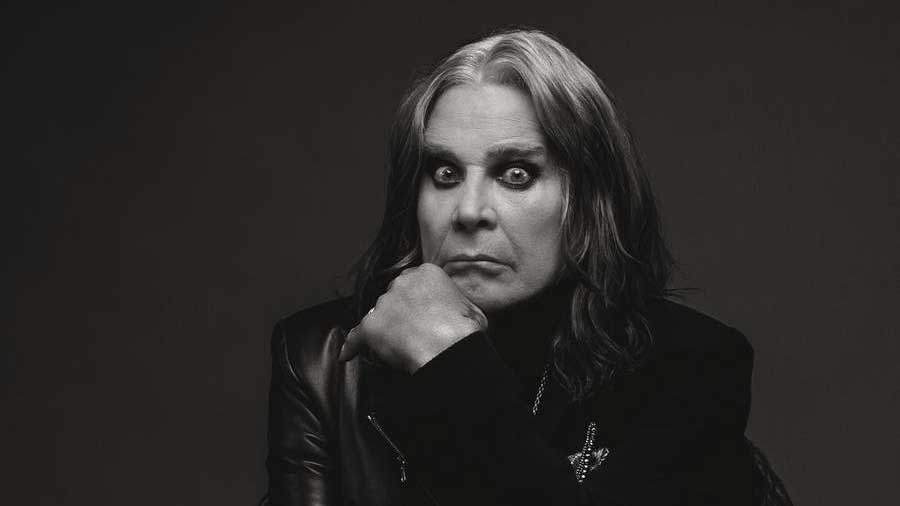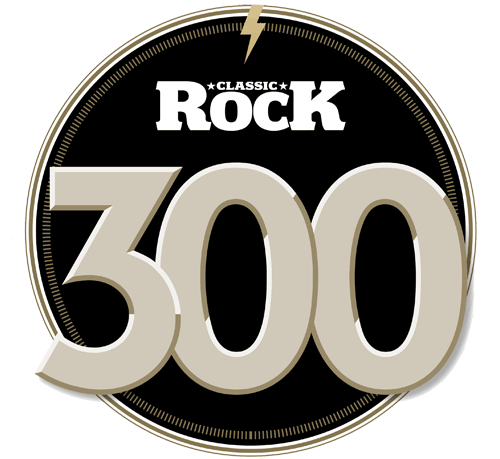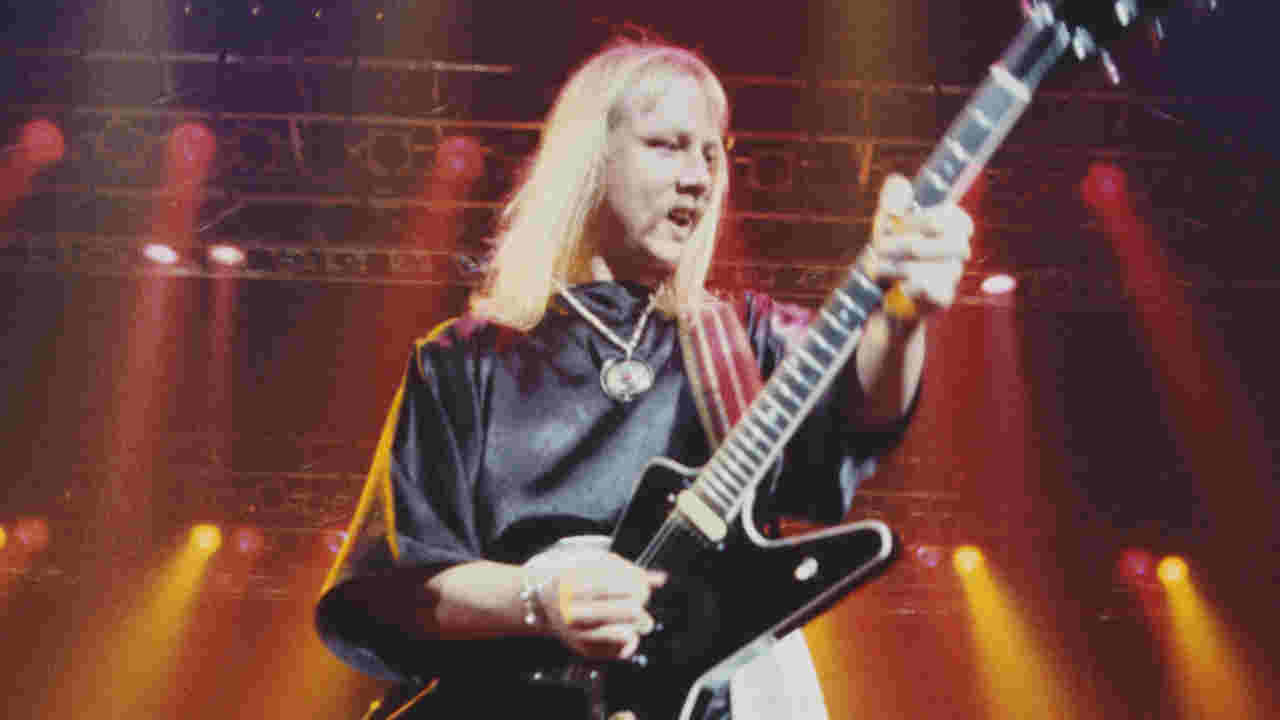Ozzy Osbourne: I don’t plan on going anywhere, but my time’s going to come
Prince Of Darkness Ozzy Osbourne talks about Black Sabbath, sobriety, burying the hatchet, beating the booze and sticking it to Lollapalooza


This interview was conducted to mark the 300th issue of Classic Rock magazine, which launched in 1998. The anniversary issue is available to purchase online, and also features interviews with Gene Simmons, Def Leppard, Alice Cooper, Geddy Lee, Justin Hawkins, Rick Nielsen, Slash and many more.
It’s been quite the quarter-century for John Michael ‘Ozzy’ Osbourne. When the first issue of Classic Rock rolled off the presses in 1998, the Prince Of Darkness was keeping busy fronting both the nascent Ozzfest and a reunited Black Sabbath. But the twist came in 2002, when The Osbournes reality show debuted on MTV and drew record viewing figures, making the family’s dogshit-scooping patriarch more infamous than he’d been since bat-gate.
The show ended in 2005 and Ozzy’s status settled from public property to heavy metal’s revered forefather. And while his late-period personal life was reliably chaotic – a fall from the wagon here, a spill from a quad bike there – his musical output has been remarkably sturdy, taking in superior solo albums such as 2020’s Ordinary Man, and Sabbath’s chart-topping 13 that gave the band their heroic last hurrah.

Classic Rock started twenty-four years ago. If you could go back to that time, what advice would you give yourself?
Stay alive.
Are you surprised that you have done, given the life you’ve led?
Absolutely. So are a lot of other people.
How good was it getting Sabbath back together in that period?
Sign up below to get the latest from Classic Rock, plus exclusive special offers, direct to your inbox!
Well, it was the first band I ever got successful in, so to bury the hatchet after so many years of being at war with each other… it felt good. If I hadn’t had success on my own it would have been a different kettle of fish. But it was good to get back to my friends. Life’s too short to have enemies, you know?
Would you still do The Osbournes if you could go back?
I don’t know. I don’t regret it. But then again I didn’t really know what I was getting myself into. It was real; it wasn’t scripted in any way, shape or form. And by the time year three came along, Sharon sat us all down and said: “What do you want to do? Do you want to carry on?” And everybody just said no. The kids were doing drugs and alcohol, and I’d gone back out on the booze. When you’ve got a camera crew living in your house twenty-four hours a day, seven days a week, it gets a bit crazy.
Ozzfest really took off in the late 90s. You must be proud of that.
Oh yeah. I mean, that was a Sharon department, not me. Sharon tried to get me on Lollapalooza, and they told her they didn’t think I was relevant any more, that I was a dinosaur. So she said fuck them, we’ll do our own thing. Ozzfest gave new bands a stage. There’s no platform now for new bands to play.
What do you think the perception of rock’n’roll was back then?
People would see the crowds at Ozzfest and they looked quite wild. But they’re nice people. You know the old saying: you should never judge a book by its cover. We look worse than we are.
Do you have a favourite album from the ones you’ve made since the turn of the millennium?
No, I haven’t got a favourite. I just carry on. The way I look at it, if I say a certain album is my greatest album, to me it’s saying that every album before or after it wasn’t as good. Some of them weren’t as good, but I’ve never gone into the studio and thought: “Well, I had a good run, I’d better make a bad record.”
Your most recent album, Ordinary Man, scored eight out of ten in Classic Rock. You must have bee pleased with it?
Yeah, it was alright. I’ve just finished another one. I’ve got Jeff Beck on it, Tony Iommi, Zakk Wylde, Eric Clapton, the guitar player from Pearl Jam. It’s coming out as soon as it’s been mixed.
Do you think there are still good rock bands coming through?
To be honest, I don’t know any more. I haven’t kept my ear in.
How have you coped with lockdown?
I do some drawings, I write some words, I read a book. But you can’t go out much. My wife’s had covid, my daughter’s had it, I never got it. I’ve been around a lot of people and I’ve just never got it. I must be one of them lucky ones. [Ozzy eventually tested positive in late April]
Do you think streaming has been good or bad for rock music?
Spotify is a fucking joke. The royalty aspect of making music has gone right down the toilet.
Social media is unavoidable for musicians these days. Do you get involved with it?
A little bit. I don’t trust it very much. Maybe because I’m an old-fashioned guy, but everything seems to be moving too fast now.
Do you think it’s difficult to be a young musician starting now?
Yeah, absolutely. It’s a completely different world now. Before, you could do gigs and get spotted. Now, you buy a book on how to be a rock star, read it and go from there.
What’s your favourite memory from the final Sabbath tour?
Our last gig in Birmingham. That’s where we started, and we ended up in Birmingham. The one thing I’m sad about is that Bill Ward couldn’t make it.
You’re about to celebrate your fortieth wedding anniversary.
I’m amazed that she’s stuck it out with me, because I haven’t exactly been the fucking perfect gentleman over the years.
What’s the secret to a successful marriage in rock’n’roll?
Don’t ask me, I don’t fucking know! [laughs]
How often do you think about Randy Rhoads these days?
All the time. It’s been forty years since Randy died. He was a phenomenal guitar player.
Losing Lemmy in 2015 seemed to hit you hard, too.
He was a good man, Lemmy was. All the guys from Motorhead have gone now, from the original band. It’s hard to lose anyone you love. I was talking to Lemmy on the morning that he died, but I couldn’t understand what he was talking about. I wanted to talk to someone else who was there, but they kept giving the phone to Lemmy.
You’ve had some great guitarists in your band since 1998.
Yeah, I have. No matter where I am in the world, if I need Zakk Wylde I pick up the phone and he’s there. Such a loyal friend.
Has there been any lasting damage from the quad bike accident you had in 2003?
Yes, there has. I’m just waiting on some more surgery on my neck. I can’t walk properly these days. I have physical therapy every morning. I am somewhat better, but nowhere near as much as I want to be to go back on the road.
How has music helped you deal with the difficult times?
Music is a good release from a lot of things in life. You listen to an old record and you remember where you were when you first heard it. It takes you back to that time in your life.
Do you think you’re sober for life now?
I don’t know. I hope so. I take it one day at a time. If I drink, I’ll drink. But I don’t want to drink today. I don’t want to smoke tobacco today. I don’t want to take drugs today. So today’s going to be okay, I suppose. I don’t know about tomorrow.
How has day-to-day life changed for you?
Well I don’t wake up in fucking jail any more.
What else would you like to achieve in your seventies?
A number-one Ozzy album. I’m coming back to England this year, too. I’ve had enough of living out here [America] now. My intention was never to stay out here.
Do you think about mortality?
At fucking seventy-three I’ve done pretty well. I don’t plan on going anywhere, but my time’s going to come.
Do you have a message for the readers of Classic Rock?
I hope I can do more gigs. I can’t wait to see you all again. God bless you all and stay safe.
Henry Yates has been a freelance journalist since 2002 and written about music for titles including The Guardian, The Telegraph, NME, Classic Rock, Guitarist, Total Guitar and Metal Hammer. He is the author of Walter Trout's official biography, Rescued From Reality, a music pundit on Times Radio and BBC TV, and an interviewer who has spoken to Brian May, Jimmy Page, Ozzy Osbourne, Ronnie Wood, Dave Grohl, Marilyn Manson, Kiefer Sutherland and many more.

